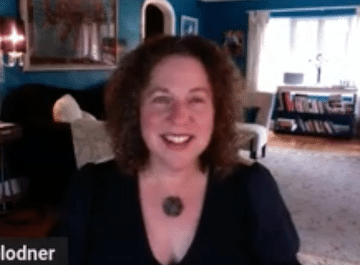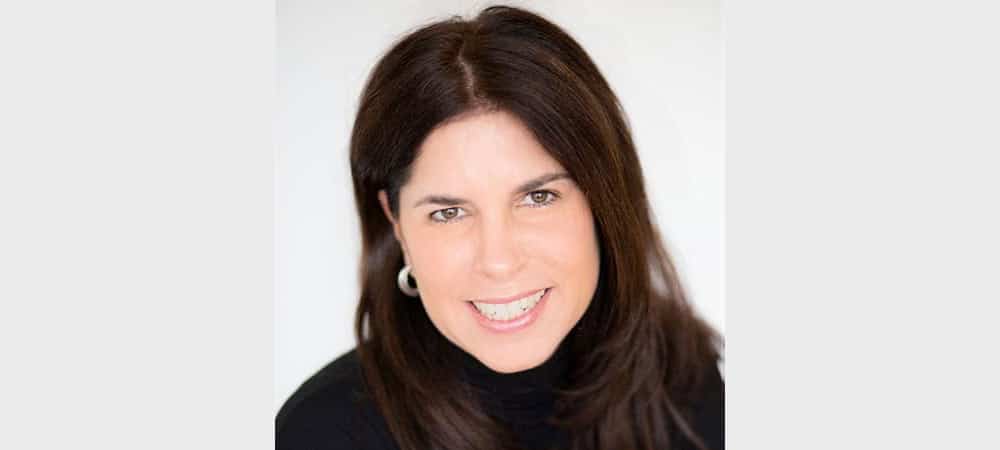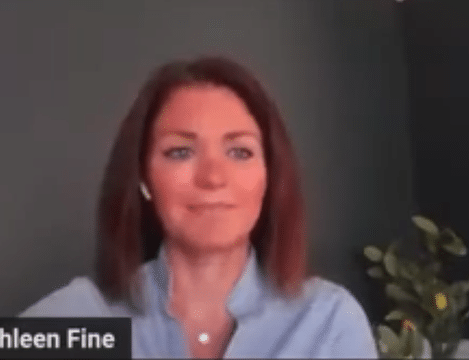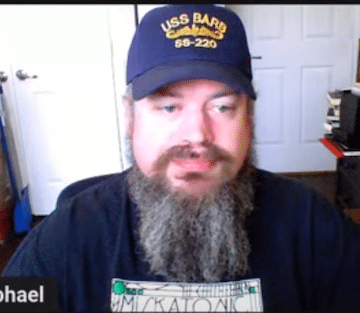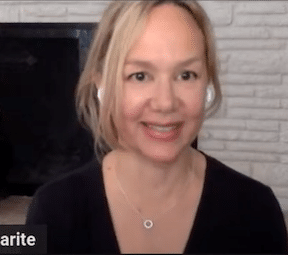In a recent First Draft Friday, I was joined by author Gordon Byron to discuss character development and how you, as an author, are almost an actor in your own book. Gordon is the author of the technothriller science fiction series Super Species.
Here are some key takeaways from my conversation with Gordon:
- Third-person perspective:
- Gordon primarily writes in the third person, allowing for a broader exploration of characters’ thoughts, feelings, and actions.
- Series consistency:
- In his Super Species series, Gordon maintains a consistent cast of characters while introducing new ones as the story progresses, ensuring continuity and depth.
- Blend of outlining and spontaneity:
- He uses a combination of outlining and spontaneous writing, allowing characters to develop organically while adhering to a rough plot structure.
- Character transformation:
- Emphasizing character-driven narratives, Gordon focuses on portraying how life experiences shape personalities, moral values, and behaviors over time.
- Flawed and relatable characters:
- Gordon highlights the importance of creating characters with flaws and relatable qualities, drawing inspiration from real-life personalities to enhance authenticity.
- Authenticity and consistency:
- Writers are encouraged to maintain authenticity and consistency in character portrayal, ensuring that characters’ actions and dialogue align with their established traits and motivations.
- Incorporating personal experiences:
- Gordon suggests incorporating personal experiences and observations into character development to add depth.
- Find your unique approach:
- Ultimately, Gordon encourages writers to find their unique voice and approach to character development, embracing diverse writing processes to create compelling and memorable characters.
It was a great discussion, one you won’t want to miss! Click below to watch our 30-minute recording and hear the questions we answered from the live audience. Keep scrolling if you’d prefer to read the transcript.
More info:
Try out Marlowe, our A.I., for a critique of your novel: authors.ai/marlowe/
Check out Gordon Byron’s books on BingeBooks.
Enjoy the show? Check out our past First Draft Friday episodes.
TRANSCRIPT:
Alessandra: Hello everyone. And welcome to First Draft Friday. I am your host with Authors AI. My name is Alessandra Torre and I am joined today by Gordon Byron. And we are going to be talking all about character development in your novel and how you as an author are almost an actor in your own book, so I’m very excited to talk about this. Welcome Gordon, it’s great to have you. Do you want to introduce yourself to the audience?
Gordon: Yes. My name is Gordon Byron. I’m an author of the Super Species series. It’s a series of three books and I’m just working on the last one now, but the first couple are finished. And yeah, I love writing. I love you know, outdoors things, traveling. I mean, what would you like to know?
Alessandra: That’s perfect. And for those of you joining, that series is technothriller, or is that the best genre to fit in?
Gordon: Technothriller science fiction, yeah.
Alessandra: Absolutely. And when we were talking on the pre-chat, one of the things you said that stood out was, you know, when we’re chatting about character development, how you as an author are kind of in each character’s shoes at different points. So my first question to you is, do you write in first person or third person point of view in your stories?
Gordon: Third person. I haven’t written anything really in first person except for journals sometimes, but yeah, mainly third person.
Alessandra: That’s interesting. I write romance and suspense and I am almost always in first person, except when there’s a character that I’m really not very comfortable with. And for me, when I write men, I typically switch into third person because I just don’t feel comfortable. But I love reading third person. So, it’s always interesting to me that we could do a whole show just on point of view and when to use what. But we are talking about character development today, so when you sit down and especially you wrote a series. Is that connected where you’re using the same cast of characters with all of the books?
Gordon: Yeah, that’s right. There’s the same cast of characters. I mean, new characters do come in, in and out of different scenes and whatnot. And then as the series progresses, then more characters and settings are added or subtracted, you know, depending on the situation and the development of their lives, you know, how their lives progressed.
Alessandra: Absolutely. So when did you start that character development? Are you an outliner or did you write kind of on the fly, and when did your character development start coming into play?
Gordon: I do both. I try to have a rough outline or at least a good mental picture of where, where I want the novel to go, you know, how the plot progresses. But I want it to be spontaneous as well; I want it to be more spontaneous so that people – and it’s just more relatable, you know, I think if there’s a little bit of spontaneity in there. And as far as character development, I’ve always tried to write novels that are more based in character development, as opposed to sweeping stories, I guess; you know, like sweeping great, you know, epic. Well, I try to write epic stories as well, but more based on characters and how they’re affected by events, how their metal is tested, their moral fiber or their strengths and weaknesses are put to the test and how they evolve over the course of how life changes them. We have these moments where we’re just tested beyond points which we think we can handle, you know, strengths that we didn’t know we had, we suddenly find when it’s necessary. Or we don’t sometimes, sometimes we just feel overwhelmed and broken by things. But somehow I guess, most people learn to pick up the pieces and move on. So, I try to attack, you know, deal with my characters and put them in situations which they’re forced to transform in some way.
Alessandra: I don’t remember what the quote is, but somebody said, you know, some author somewhere said putting ordinary people in extraordinary situations is kind of what we often do in our books. And then like you said, they either rise to the occasion or they fail, or they’re somewhere in between. Or they do both in the course of the stories. But you’re right, and so, you would say that your books are more character-based versus plot-based.
Gordon: Yes, character-driven. Because what interests me is how life affects us and how life changes us and tests us in so many ways, you know, just a million different ways how we’re constantly being tested, physically, psychologically, emotionally — in terms of human relationships, we’re always being tested.
Alessandra: Yeah, and the other and how we respond, like even small tests. And that’s the great thing is throughout your scenes, you can have your characters, just little decisions, you know, that can show you the person that they are. But when do you start? So, if you’re sitting down to write a book or when you sat down to write your series and you’re thinking about your characters, how did you figure out what each character was going to be, their personality, that sort of thing? Did you have a process that you went through?
Gordon: Yeah, and I think it’s based on novels that I’ve read in the past and how I’ve enjoyed the interaction of characters in those novels. You know it could be that they’re at opposite extremes in terms of their goals in life, their points of view. You know, maybe some people want to succeed by helping other people or building something. Or as other people they want to survive by the opposite. You know, maybe taking advantage of people or living off of people or deceiving people or whatever, you know? So, it’s those interactions of different personalities that I really try to emphasize those personality conflicts and those different points of view and how they come together. So when I choose characters, I try to choose them based on personalities that are both compatible and incompatible, and how that works into – and how people can learn from that, how I’ve learned from that, you know, personally from novels and all through personal experience.
Alessandra: Yeah, that’s so true because it’s not just about creating great characters, it’s their interactions with each other. So, if you created three great characters, but everything was just perfect and hunky dory between them, it would be a very dull book because all they would do is just continually agree with each other about everything. So, that’s a great point in the different situations that you’re going to put them in. How one strength might play off versus another weakness. So when I’m looking at a character, you know, there’s whatever they will face in the book and their plot line, and then there’s their own individual personality. And do you have any tips because like you said, we’re in their head. We’re going through that journey with them, but sometimes we’re not always exactly like our characters. And I mean, we can’t be exactly like all of our characters or else we would again have just an entire book of Alessandras or Gordons. But do you see a little bit of yourself in all of the characters in terms of maybe your stubbornness is in one character and your moral compass is in another? How do you fit into your characters?
Gordon: Absolutely. You know, well, it’s like I see a little bit of myself in almost every person I meet. You know, even sometimes things you don’t want to admit about yourself. Like maybe you are at the grocery store and someone is just flustered by the smallest little detail and you may think, oh, I’m above that. But then you get in situations like that where you’re just completely flustered by the smallest little thing and you say to yourself we’re all like that. We all have those moments where we’re just like, either our emotions are particularly sensitive or we’ve had a bad day or something like that. So, yeah, I think in all of my characters I try to, you know, I sympathize with something about them, even if they’re a character that I don’t like, maybe that is you doing something awful to my main character, my protagonist, but I sympathize with that character because I have to. I want to give that character a three-dimensional real effect because that’s a real person, even though I may not like that person on certain moral grounds or social grounds or whatever; that’s still a real person that has lived a life. And I want to kind of empathize and sympathize with that person because, you know, it’s part of the novel and it affects the entire thing.
Alessandra: And some of the best villains – this was a different episode we did that was talking about villains. And I wish I remembered who the guest was, but it was saying that, you know, your best villains have a side that you can relate to. And so, that’s one of – even when you think about movies, when you think about like, you know, Hannibal Lector, like there was a part of you that liked Hannibal Lector, you know, even though he was obviously like a horrible individual in terms of what he did to people. But if you can create a human side or even in Silence of the Lambs, like when the serial killer had the puppy that he really loved, you know, you saw a human side and you know, who hasn’t loved a puppy? I mean, you know, maybe a cat person, but everyone can relate to that.
So, I love that point, because it doesn’t have to be that extreme. It doesn’t have to be a serial killer, but it can still be… I err on the side… When I read a lot of my book reviews they are often saying they’re all unlikable. Like, these are all unlikable characters. I think I embrace the negative qualities when I write characters because I find them so much more interesting than the kind, happy, you know, innocent people.
Gordon: Well, you have to write what really inflames your interest. I mean, for each one of us, it’s something different. You know, we like – yeah, maybe some of us like goody two shoes characters, and some of us like villains and some of us like something else, there’s an entire spectrum in there. Some people, you know, like something in between or wishy washy characters or what have you. It’s just a matter of personal preference, I guess.
Alessandra: I’m constantly researching for a character, right? So everybody I meet, you know, and it’s easy. It’s like when you go to a restaurant and you only remember the bad appetizer, you know, and you don’t focus on the good things, so I think it’s the same thing. I’m continually meeting people and going, ooh, I’m going to save that little quirk of theirs and set it aside and maybe I can use it in a book somewhere.
Gordon: Because it’s so humanizing, isn’t it? In a sense, I think it’s our faults or our foibles that really sort of make us who we are in a certain sense. In a way they kind of endear us to other people because someone who is either too perfect or too imperfect, I guess, is just not very human. If someone is too perfect in every way, or just has nothing but faults, you know what I mean; that’s not very endearing, I guess. It’s those little things that maybe don’t fit into what you thought that person was or that really stick in your mind sometimes.
Alessandra: I want to hop to a question from YouTube and this is from Kit, and the question is “What are the biggest mistakes writers make in creating characters?”
Gordon: One of the biggest mistakes I made when I first started out was, I guess, like you said, referring back to what you said is kind of making every character like you, or thinking that every character should be like you, or even thinking that every character should be some grand and glorious, memorable person, you know and trying to make them just great. Whereas in reality, even great people have a human side and have faults. So, you should make a character who is super in some ways, you know, super at a job or super at what have you, whatever it is, but also humanize that person and make them a human being that people can relate to. A person that has a family. Maybe they have problems with their family, you know, their kids or whatever. No, they’re not perfect and none of us are. And I think that should be communicated even in like, you know, in spy novels or whatnot where pretty much characters are not emotional; typically, they’re just, you know, they’re going through different action sequences or whatever.
Alessandra: Yeah, and coming from a romance background, I think the biggest mistake is these perfect heroes that have absolutely no flaws. Often the heroines are the same way, you know. You want to create flawed and, like you said, relatable characters. The other thing that I see is inconsistency with characters. So someone will spend the first half of the book building a character, and then the second half of the book that character will act or react in ways that don’t fit everything that you set up, so that’s the other. And with a series, it’s got to be even harder. I’ve written a few series, but for the most part, I write standalone. So, do you have a series bible or how do you keep track of your characters and kind of keep them consistent while they’re still changing throughout the books and their situations?
Gordon: Well, you know, what was recommended by Steven King and I have always remembered this is, I think pretty sure it was Steven King. He said he writes 10 to 20 pages and then goes back and edits, so you’re constantly being reminded of the story. You know, I write, you know, if they’re minor characters or just like walk-on parts or whatever you know, I’ll write them down usually somewhere in the document. But generally speaking, if you do that, like you write 10 pages or 20 pages, then you go back and edit and you’re constantly doing that; it’s not only preventing you from having to edit 100, 200, 300 pages at a time. It’s also reminding you of the story and the events that happened, and it helps you to keep it straight too – so, your characters. But I have noticed that, too, people will, and I was guilty of that too, and maybe I’m still a little bit guilty of that, is keeping the dialogue within the personality and the emotions and sentiments of the character. Like making sure that this is something that person would say or something that person would think.
Alessandra: Yeah, that’s a really good point. Yeah, dialogue oftentimes can flag as inaccurate. Linda from Facebook said, do you – and this fits in well with what we’re saying – do you advocate writing detailed character profiles? Have you ever done that for your books?
Gordon: I have, but it’s mostly a mental exercise. I used to do that more than now. Now, it’s mainly a mental exercise and normally even when I write it, I don’t stick within that framework. So if the character is, say, a heroic figure or a normal type person, then I’ll have some ideas about that. Maybe I’ll write a general outline, but I don’t stick to that typically. Because people grow and people change and especially if the novel is – they’re going through lots of difficult events or challenging events or major life upheavals, then it’s going to change them. And maybe before they were a very weak person, or a very scared person, but in the course of the events of the novel, they became stronger. They became more outgoing or they became… They wanted to travel or whatever, so they changed. People change. So yeah, in general, I think it’s a good idea though.
Alessandra: Yeah, I’ll keep a notepad where I’ll jot down the tiny details like works at Sally’s diner, you know, I don’t know, age whatever, because I forget those details. I think it all depends on your personality type. Because for me, if I went down and wrote a detailed character profile, I think I’d be bored with that character by the time I was done with it. So, I like to learn my characters as I write, but every author is different.
Gordon: But you’re right. Those minor things, you know, those little things like, you know, he was driving a red Camaro or something, you know, 20, 30 pages, 50 pages later, you’re not going to remember it’s a red Camaro, right?
Alessandra: Yeah, absolutely. Diane from Arizona said, what exercises do you do to get to know your characters? Do you have any exercises that you rely on?
Gordon: Exercises in terms of mental exercises? I always try to think in terms of… I try to get out of myself, like the novel is not about me, it’s about that character and how the character is dealing with the situation, dealing with the person. And so my exercise is not to think of myself too completely. Just get out of myself and into that person, like an actor would. You really want to leave yourself behind and sort of really throw yourself completely into that personality, even if it’s totally unlike you; even if it’s just completely out of character.
Alessandra: Do you typically have muses in your head? Are you thinking that this character is like, I don’t know, Aunt Sally, you know, or like actor X, Y, Z? In your head, do you have a person that you picture when you write a character?
Gordon: I do, and a lot of times they’re family members, teachers from the past, you know, friends, neighbors, girlfriends, and a lot of times they’re patchworks of different parts of those personalities put together into one character to say something that I want to say. It could be my girlfriend from 15 years old has this personality trait, and I put that together with another personality trait to build a profile, you know, a personality profile that I want to present here.
Alessandra: Yeah, I love that. And my characters are often Frankensteins. This TV show character’s personality is married with this person, married with whatever.
Gordon: That’s the beauty of it.
Alessandra: Yeah. Kit says John Wick is a relatively simple character, and I don’t know, Gordon, if you’ve seen the movie John Wick, but it’s one of my favorite movies, so I love this question. Why is he so popular? Can our characters be simple too?
Gordon: Of course. I mean, you write the novel that you want to write. It could be simple characters, and I think it depends on the type of novel too. I mean, John Wick is a certain type of story, and if you were to write about John Wick’s deep emotional experiences in his childhood, it would probably detract from the whole theme of the story, wouldn’t it? And it depends on the type of novel. Like if you’re writing a spy novel, like I said, you don’t go into his relationship with his mother or something. You stick with the story and the action sequences and the gun battles and the car chases.
Alessandra: Yeah, I agree. It totally varies based on your genre and the type of story you want because that character backstory can really slow down the pacing, and in other stories, it’s really important depending on what you’re writing. But I do love John Wick, and I don’t know if he’s so popular because it’s just such a great movie. I don’t know how much of it has to do with him, but I think you can’t help but root for him.
Gordon: Keanu’s a great actor too.
Alessandra: Yeah, yeah. Yeah. Keanu did a great job with that.
Gordon: Always does. So, this is a more detailed question. I don’t have the name, but it’s from someone on Facebook, and they said that my character’s characteristics emerged as my manuscript developed. I tried to write character profiles at the start, but found that they didn’t fit as my story started to emerge. Is it wise to just stick to minor characteristics rather than major ones? Am I just a bad writer or am I just using an unconventional approach? So before I let you answer, of course, it’s not that you’re a bad writer. All of our processes are different, so definitely don’t think that, but I’ll let you answer that question, Gordon.
Gordon: No, I think everyone, you know, you need to find your individual voice. There’s no one size fits all for writing a novel. Even in a nonfiction book, everyone writes their own way. Everyone has their own voice to get out to the world. I don’t think you’re writing in the wrong way. Just think about the type of novel that you’re writing and how your characters fit into that. And if your characters develop and change and grow, and they adopt new traits, new characteristics during the course of the novel, then that’s great. I mean, some of the best novels in the world I think had that chain of events where they change a lot at the end you know, like the Count of Monte Cristo or something like that. It started off as a pretty, nothing, nobody character, and then at the end, he was quite swashbuckling and a very strong formidable figure who could do anything. So, it’s just, you know, write your story the way you want it to be told. If your characters change, if they grow, if they become more titanic figures at the end, then all the better.
Alessandra: And I’ve had characters that I really struggled with in the beginning because I think I was trying to fit them into this certain square peg that I had envisioned that they were going to be. And it was just like writing in mud. Like I just couldn’t get, and then finally it was like, once I figured out that character’s personality, you know, which wasn’t what I had initially intended, then the story just, you know, then every scene with that character was easy. So, I think it’s fine to be kind of fuzzy in the beginning if you aren’t sure. And then as Nikki said, she’s also on Facebook. She said, when I’m writing my characters, it’s almost like they’re shy in the beginning and show me more of their character as the story progresses. I know other authors know everything from the start. Go ahead. Sorry.
Gordon: That’s the growth process for the author too. You know, initially, you have maybe in mind a couple of characters, a man, a woman, or whatever, a family or something like that. And they’re pretty, you don’t really have a clear idea of who they are and what they are or what will happen to them over the course of the events, but then it develops and you grow along with it; you get better at your craft at the same time.
Alessandra: Absolutely. Diana said, do you have any tips for mapping out character arcs to make sure your characters change enough from the beginning to the end?
Gordon: I don’t really have an arc, like a point that I want them to start at and to reach, because that will definitely change, you know, that always changes during the writing process. But yeah, I kind of have a vague idea of where I want them to go. Like they start as, you know, a certain type of personality and maybe they have a problem. Maybe they have some failing or some issues in their life and they deal with them through the course of it, and maybe they change and they end up in a different place or they end up maybe in a worse place, you know, it could be any number of things, but I don’t have a specific like arc that I want them to reach.
Alessandra: Yeah. And it’s funny because when I first started writing and I feel this way now I was always taught that your characters have to undergo a fundamental change from page one to the end. And I never agreed with that because I think every book is different and I think we can challenge our characters, and oftentimes they will grow and they will change. But a lot of times if it’s a James Bond book, James Bond really isn’t changing much, you know, from start to the end. So, every story is different and sometimes they do go through a drastic change in their situation or personality, but in some books they don’t and that’s fine, too.
Gordon: They don’t. That’s right. If it’s just James Bond or, you know, Bourne Identity or something, you know, the character going through the story, you know, winning over the bad guys and that’s fine. Those are great stories too.
Alessandra: And you have side characters versus main characters. So, how much attention do you devote? You know, if you have John Snow with Game of Thrones, I mean, his character dramatically changed over the course of the series, but then you had minor characters that maybe were bad from beginning to end, you know, and you didn’t see much. So when you’re thinking about series and characters, how much space on the page do you give minor characters versus major characters, and the same with your plotting and thought processes with them?
Gordon: I only give minor characters enough voice and place in the story as they serve the overall plot. If they add something, sort of dramatic quality, some comedic quality, something to get a message across or to make something more clear in the story, yeah, then I’ll give them as much as necessary, you know, whether it’s half a page, you know, one page, two pages, you know, however much it’s useful to the story.
Alessandra: Yeah, perfect answer. Any other tips that you have if someone is looking at characters or things that you want to warn writers away from that has tripped you up in the past with your character development? Is there any final… we only have – and for those of you watching, we have one minute left. So if you have any final questions, now’s the time to shout them out. But is there any last thing you want to share, Gordon?
Gordon: No. I just wanted to say, you know, with characters, just get in touch with yourself. The more in touch you are with yourself, the more you will understand your characters, in my view. Because, you know, to humanize your characters, you have to understand your own – what you’re going through, you know, what your own conflicts are and your own ideas and struggles and things like that are, and you can transmit that to them, but in a different way. Obviously, you’re not making them you, but you’re sort of, at least the level and intensity you can bring to your characters.
Alessandra: I love that. Thank you so much, everyone who joined us for your live questions and comments. And I saw this final one. Sometimes the names display, sometimes they don’t depend on how you’re set up, but the detailed question was from Alice Star MacGyver, from Burke Hamstead. And that sounds like such a great character name. I’m sure I’ve butchered it in the pronunciation, but I love seeing all of your names, and thank you guys for joining us live. Thank you, Gordon. If they’re interested in reading your books in your series, what is the first book in your series that they would look up?
Gordon: The first book is called The Superspecies. And that’s available on Amazon and Google Books, Apple Books, Barnes and Noble – major retailers. So yeah, they can check it out there.
Alessandra: Fantastic. Thank you, Gordon. And if you are watching us on YouTube, I encourage you to subscribe. If you are joining us on Facebook, please join the group and we will be back in two weeks with another First Draft Friday. Thank you so much, Gordon. Thank you everyone for joining us.

